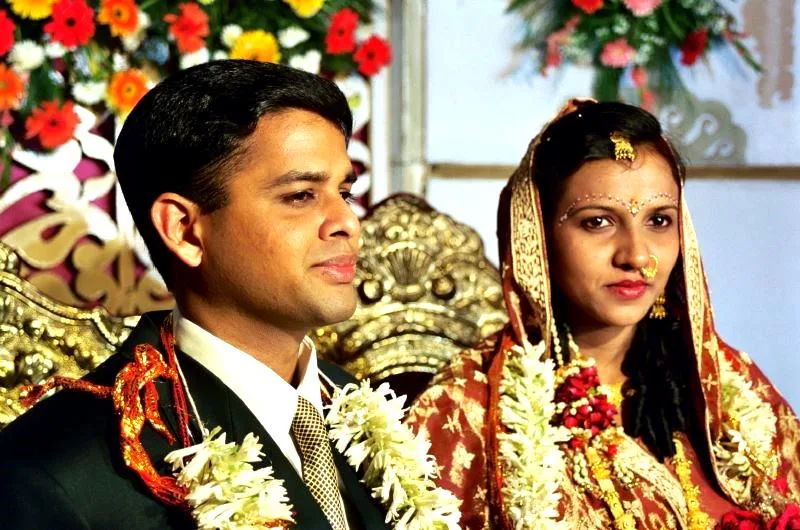Efforts to address social issues risk being co-opted for political gain or used to further divisive agendas.
 Registering live-in relationships is part of the state’s mechanism to govern love. : Erik Törner © Erik Törner, CC BY-NC-SA 2.0 DEED
Registering live-in relationships is part of the state’s mechanism to govern love. : Erik Törner © Erik Törner, CC BY-NC-SA 2.0 DEED
Efforts to address social issues risk being co-opted for political gain or used to further divisive agendas.
When the state enters people’s private lives, it sets the stage for debate and discord.
In February, the Uttarakhand Assembly passed the Uniform Civil Code Bill, marking the first legislation in an Indian state that proposes uniform rules for marriage, divorce, inheritance and — contentiously — live-in relationships for people across all religions.
While conversations around a uniform civil code are not new, implementing it in a diverse and culturally pluralistic society like India poses several problems. A primary criticism is its potential to stifle personal choice and autonomy.
Live-in relationships, which have gained acceptance and legal protection as a legitimate lifestyle choice, could face more regulation and surveillance under the Code.
Such interference infringes upon people’s rights to privacy and freedom of association and perpetuates conservative social norms that deem certain relationships morally unacceptable.
The Code must be considered in the larger, changing legal landscape where laws on conversion and “freedom of religion” scrutinise religious conversions on grounds of marriage, especially conversions to Islam.
By requiring live-in relationships to be registered and investigated by the registrar, the state is positioning itself as a guardian or parental figure, exemplified in cases like Hadiya vs. the State of Kerala.
Registering live-in relationships is part of the state’s mechanism to govern love. Tedious bureaucratic processes and paperwork are the state’s way of imposing upon its citizens that it is working efficiently.
Requiring couples to submit forms and subject themselves to an investigation by a state official for intending to enter a live-in relationship seems like an inconvenience not just for the couples but for the state, whose resources are stretched.
The government is motivated to do so to appear as efficiently run and position itself as a parental figure for women, especially Hindu women who it views as inherently vulnerable, incapable of making rational personal decisions and in need of protection. It also allows the state to surveil citizens, especially those in what they deemed as transgressive relationships like interfaith and inter-caste romantic relationships.
Deeper state: Surveillance and moral policing
The Code is a mechanism to receive the state’s approval of a romantic relationship, going beyond the consent of two individuals.
For relationships the state disapproves of, the Code allows the registrar to investigate an application by a live-in couple for 30 days before issuing a registration document. It is vague on what happens if the registrar refuses to issue a registration document. Will couples need to break up?
On a more menacing note, the registration of live-in relationships, especially those seen as undesirable by the majority — such as interfaith relationships — will contribute to a database of couples that could have serious, even fatal, repercussions.
This new dataset could empower the state and state-supported vigilante groups to regulate and influence the dynamics of love within cohabiting relationships.
Such measures may inadvertently foster vigilantism through platforms like housing societies and reinforce the concept of the “deeper state“, which operates as a clandestine entity employing surveillance techniques.
The implementation of the Code should also be seen in light of rising cases of vigilantism against cow slaughter under the larger context of bovine politics in Uttarakhand. The notion of ‘affective labour for bovine love’ — love for the cow framed as love for the state — intertwined with the Code discourse on ‘love jihad’ in a sacred Hindu geography is particularly concerning.
In framing the Code as a means to uphold traditional Hindu values and protect sacred geography lies the risk of perpetuating a form of Hindu nationalism that prioritises homogeneity over diversity and tramples individual freedom of choice in the matter of courtships.
Conspiracy theories like love-jihad — which claims that romantic relationships between Muslim men and Hindu women are ploys by Muslim men to convert women to Islam — were often used by right-wing Hindu vigilantes. This is now entering the state’s language and policy. This theory that Muslim men trap “innocent” Hindu women into marriage is not only blatantly false but is a dangerous conspiracy theory that undermines women’s autonomy and portrays Muslim men as hypersexualised enemies.
Supporters of the Code celebrate that these provisions will offer protection to women but conversely, it undermines their ability to make decisions. It infantilizes adult women, suggesting they require parental oversight and support for personal choices, reinforcing the notion of women’s dependence on external guidance and refuge.
Legality of live-in relationships
Romantic relationships between consenting adults who choose to cohabitate are not illegal but are considered a cultural taboo. The Supreme Court of India has in several cases pointed out that live-in relationships are not an offence, most notably in Lata Singh vs. State of U.P. in 2006. Despite this, couples still face harassment and discrimination for basic amenities like housing.
Live-in relationships are also legally recognized under the category of “domestic relationships” under the Protection of Women from Domestic Violence Act, 2005.
Despite legal recognition by the highest court, there are many examples of state representatives using their own standards of morality to approach unmarried couples. An Allahabad High Court judge recently stated that live-in relationships are “timepass” and “temporary“.
The Uttarakhand Code is yet another example of attempting to legislate on grounds of morality. Its supporters argue that registering live-in relationships is progressive and will extend recognition and protection to those in such relationships, such as allowing for claims of maintenance and recognising children born from such unions.
However, there are several issues with its provisions and how they may be implemented in reality, given the current socio-political climate in India.
The code defines a “live-in relationship” as “a relationship between a man and a woman, who cohabit in a shared household through a relationship in the nature of marriage”. This definition is much narrower than the Domestic Violence Act. By defining the gender of the partners, the Code excludes queer or same-sex relationships from legal recognition.
In addition, the age criteria for both partners is listed as 21. This is inconsistent with marriage laws where the minimum age of women and men to enter wedlock are 18 and 21 respectively. If live-in relationships are to be viewed as the “same as marriage”, then the different age limits are meaningless.
The other problem is that parents or guardians will be notified if the partners are under 21 or for any other reason the registrar might find necessary. This could prove restrictive as, in many jurisdictions, some registrars contact parents and guardians for registration of love marriages based on their own moral assumptions, even though both parties are of legal age and it is not required.
That means, for live-in relationships, it is highly likely that parents and guardians will be contacted, which defeats the purpose of having the autonomy to enter into a relationship of your own choice.
Perhaps the most dangerous provision of the Code is that it will criminally punish those who fail to register their relationships with the state. This begs the question — why register at all?
To avoid inflicting harm on many couples, policymakers have to approach the issue of live-in relationships under the Uttarakhand Uniform Civil Code with sensitivity and caution. To function well, any proposed legislation has to be inclusive, respecting the diversity of beliefs and lifestyles within the country while upholding fundamental rights and principles of equality and privacy before the law.
Efforts to address social issues should not be co-opted for political gain or used to further divisive agendas that undermine the secular fabric of the nation. Only through genuine dialogue, empathy and a commitment to pluralism can India navigate the intersection of law, politics and culture in a manner that promotes harmony and justice for all its citizens.
Sadaf Javed is a PhD candidate at the Department of Geography, Rutgers University, New Jersey.
Reecha Das is a PhD candidate at the Department of Anthropology, Rutgers University, New Jersey.
Originally published under Creative Commons by 360info™.











